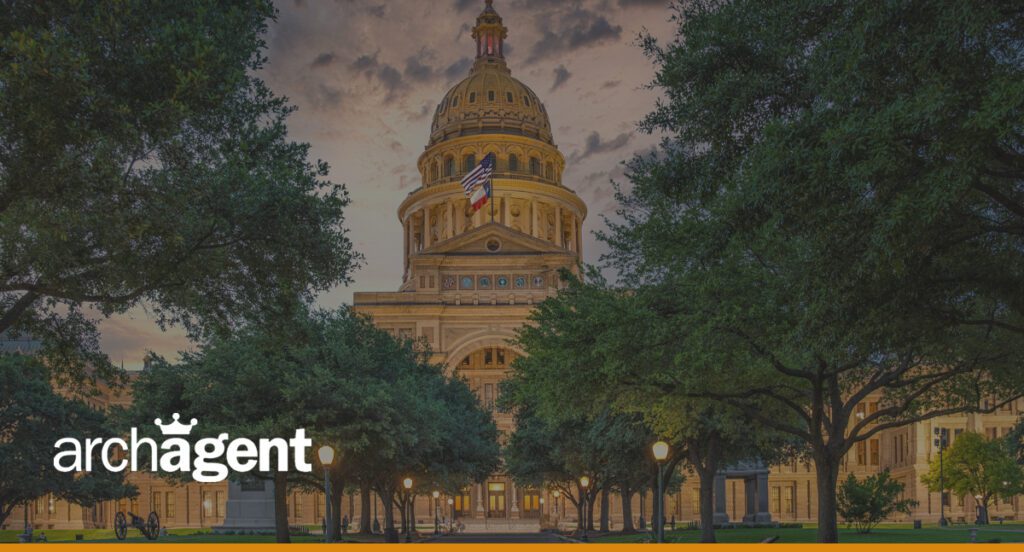
Since Texas Senate Bill 140 took effect on September 1, 2025, we’ve been flooded with questions from our Texas subscribers about how this new legislation impacts their operations. This isn’t just another regulatory update you can afford to overlook—SB 140 fundamentally changes the enforcement landscape by empowering consumers to take legal action directly against businesses that violate the law.
Given the complexity and potential liability involved, I reached out to telemarketing and data privacy attorney Kellie Bubeck of Bubeck Law in Kansas City, Kansas, who has been instrumental in helping ArchAgent navigate telemarketing compliance issues for years. Kellie is a nationally recognized authority in this specialized area of law, and her insights have proven invaluable to our operations.
With Kellie’s generous permission, I’m sharing her comprehensive analysis of SB 140 with our entire client base. Her breakdown cuts through the legal jargon to deliver the practical guidance you need to protect your business and ensure compliance.
Whether you’re a Texas-based company or conduct business in the Lone Star State, this article will help you understand your obligations under the new law and avoid costly legal pitfalls. For those who need personalized compliance guidance, Kellie’s contact information is included at the end of this post.
If you’re making telemarketing calls from or into Texas, state registration is required unless an exemption applies. Violations can cost $5,000 each. While Texas is making headlines, the reality is that many other states also require businesses to register before making telemarketing calls. There is no federal registration requirement, but state rules fill that gap and ignoring them can mean fines.
Exemptions to Keep in Mind
Not every caller has to register. Some states exempt calls made with prior consent, or calls placed on behalf of certain entities like nonprofits, insurers, or financial institutions. Others exempt companies that do not make unsolicited calls. Still, some states have more requirements, such as posting a surety bond or paying registration fees.
It is important to strike the right balance. Over registering can be just as problematic as under registering because it adds cost and complexity you may not need. The smarter approach is to have an attorney analyze your call practices (we do this a lot), see which state laws apply, and identify any applicable exemptions.
Do Not Mix Up Registration and “Do Not Call” Lists
One of the biggest misconceptions I see is treating telemarketing registration and “do not call” list subscriptions as the same thing. They are not. Registration is about whether your business is legally authorized to place telemarketing calls into a state. “Do not call” lists are about who you can and cannot call once you are authorized. Some states blur the language, but compliance requires paying attention to both.
Why Registration Matters for Your Business
Think of telemarketing registration like a business license, a basic requirement that protects your operations. With Texas SB 140 now giving consumers the ability to sue directly, this is a good time to review your compliance. Make sure you are registered where necessary, take advantage of exemptions where they apply, and keep “do not call” list compliance on a parallel track. A little diligence now can prevent costly fines and lawsuits later.
Bubeck Law LLC
5440 W 110th St, Ste 300
Overland Park, KS 66208
kellie@bubecklaw.com
(913) 340-7206
Here is a summary of business exemptions. If you are setting face-to-face appointments and are careful not to close appointments on the phone, Exemption 8 should be reviewed by your counsel. If you need expert compliance counsel, please contact Kellie Bubeck.
- Tex. Bus. & Com. Code § 302.052 – Exemptions generally apply only to “sellers,” except as modified by § 302.060.
- § 302.053 – Entities already regulated under specific state or federal regimes (securities firms, publicly-traded companies, insurance firms, supervised financial institutions, certain public utilities, communications carriers regulated by the FCC, persons selling negative option plans regulated by the FTC, and Commodity Futures Trading Commission are exempt.
- § 302.054 – Solicitors of media subscriptions, periodic-shipment merchandise (with advance consent), or products offered through qualifying large-format catalogs are exempt.
- § 302.055 – Educational institutions and § 501(c)(3) nonprofit organizations are exempt.
- § 302.056 – Sales to purchasers who intend to resell or use goods in a recycling, reuse, remanufacturing, or manufacturing process are exempt.
- § 302.057 – Persons soliciting the sale of food are exempt.
- § 302.058 – Solicitations for maintenance or repair of previously purchased goods, or solicitations to former or current customers of a business operating under the same name for at least two years, are exempt.
- § 302.059 – Parties that limit calls to arranging face-to-face sales presentations, or retailers operating under the same name for at least two years where a majority of sales occur at the retail location, are exempt.
- § 302.060 – A service provider that has operated under the same name for at least three years and derives at least 75 percent of its solicitation business from exempt entities is itself exempt (based on the other exemptions).
- § 302.061 – Individuals making isolated solicitations that are not part of a pattern of repeated, similar transactions are exempt.

Steve Cortez is a seasoned real estate professional with decades of experience and owner of ArchAgent. ArchAgent brings together the tools and resources the country’s top real estate agents rely on in a single package for a low cost.